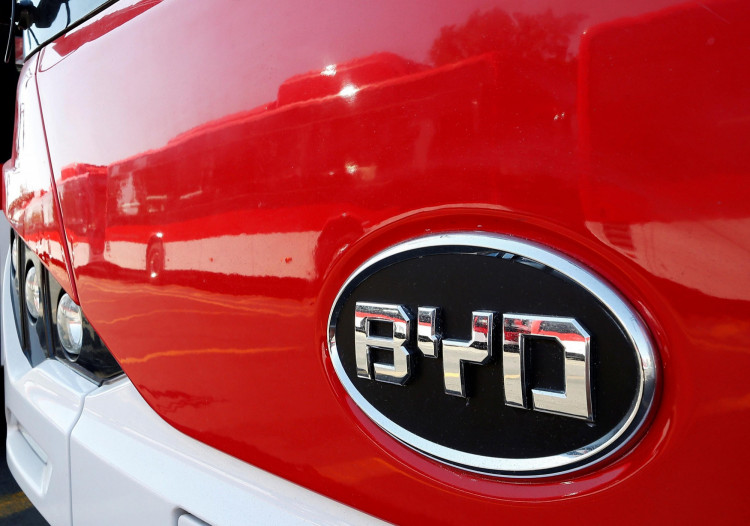Shares of Chinese automakers plummeted Monday following aggressive price cuts by BYD and renewed warnings from industry leaders over the long-term sustainability of China's electric vehicle (EV) sector. BYD's Hong Kong-listed shares fell 8.6%, extending losses from their recent record high, after the company announced a new round of price reductions and trade-in subsidies on more than 20 electric and plug-in hybrid models.
The steepest discount was applied to the Seagull hatchback, whose base price was cut by 20% to 55,800 yuan ($7,765). The Seal dual-motor hybrid sedan was reduced by 34% to 102,800 yuan. Customers are required to trade in existing vehicles to access the new incentive pricing, according to a BYD customer service representative.
The selloff extended to rival EV makers. Geely shares dropped 9.5%, while Nio and Leapmotor fell between 3% and 8.5%. Great Wall Motor slipped nearly 3%. Analysts attributed the widespread declines to investor concerns that BYD's aggressive pricing strategy would intensify already fierce competition and drive profit margins lower across the sector.
Citi analysts estimated that BYD's price cuts may have driven a 30% to 40% increase in dealership foot traffic between May 24 and 25 compared to the previous weekend. While they maintained a positive outlook for budget EV makers priced below 200,000 yuan, they cautioned that competition could remain intense in the months ahead.
Industry unease was compounded by remarks from Wei Jianjun, chairman of Great Wall Motor, who told Sina Finance that the Chinese auto industry now has its own "Evergrande" - referring to the property developer whose collapse triggered a broader financial crisis. "Now, Evergrande in the automobile industry already exists, but it has not collapsed," Wei said, without naming specific firms.
Wei warned that some manufacturers are slashing prices so aggressively that quality and safety could be compromised. "Some products have been reduced from 220,000 yuan to 120,000 yuan in the past few years. What kind of industrial products can be reduced by 100,000 yuan and still have quality assurance? Well this is absolutely impossible," he said.
He further noted that many suppliers are under immense financial pressure from delayed payments and relentless pricing demands, threatening the integrity of the EV supply chain. Wei said the Chinese electric vehicle industry was in an unhealthy state, citing mounting losses, a prolonged price war, and increasing financial pressure on suppliers.





